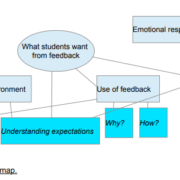Get Qualitative Dissertation Services in Scotland
Qualitative dissertation Services in Scotland. Yes affordable and high quality research writing services for MBA specialisation. We offer 24X7X365 one to one Whatsapp support for your Scottish dissertation queries, in all MBA fields. Nowadays, globalised world isn’t merely constrained to fact finding a good qualitative dissertation Services near me. MBA Research for writing Qualitative Dissertation Services in Scotland, encompasses research proposal writing services in Scotland. Before that research topic choice service in Scotland is first and important step towards dissertation writing journey. Dissertation editing Services for MBA in Scotland, is often riddled with questions regarding the online trustworthiness, especially in the case of interdisciplinary topics in MBA dissertations. Therefore, if you are seeking help in qualitative research in MBA in Scotland Dissertationshelp4u in Scotland offers the best qualitative writing service in Scotland. MBA Qualitative dissertations Scotland writing must establish the credibility in research topic justification or writing rationale for research, as to why a qualitative dissertation approach is adopted by MBA student.
Qualitative dissertation writing in Scotland
Let us first understand why and how a Qualitative dissertation writing in Scotland happens? is it just nVIVO analysis for Qualitative Research Dissertation Services in Scotland? or how do we work on establishing research phenomenon for Qualitative dissertation writing in Scotland, nVIVO analysis in the qualitative cases? According to the Dissertationshelp4u Editing Services Scotland, the researcher needs to explore the dimensions of research topic to frame qualitative questions in the MBA dissertations in Scotland. The aspect of research trustworthiness that should be established first between the dissertation writer, and the Professor in Scottish University establishing the same frequency of communication in the context of dissertation writing. This requires the researcher to clearly the research topic, literature review writing services in Scotland, and most importantly link the research findings with research objectives. It is the key step where the readers can relate to the truth in qualitative data collection service in Scotland, qualitative questionnaire service, secondary dissertation writing service in Scotland. The entire scope and effect of writing dissertation research that is carried out, thus depends on how credible the dissertations writer in understanding the Scottish dissertation topic, are or your data collection methods are. Here, we turn our attention to two of the best possible techniques that establish credibility in qualitative research.
Dissertation triangulation Technique:
Most of the dissertation writing services agree that dissertation triangulation technique, that uses a methodical approach to synthesize the outcomes of the research data sources in order to observe the application of framework, models and theories of literature review, to gain understanding of the research phenomenon being studied. The method of research in dissertation establishes the outcomes of the data analysis chapter, to be tested against the hypothesis of the research. This technique in last chapter of dissertation writing, helps to firm up the robustness of the research findings. The technique employed in triangulation of sources explores utilization of different data sources within the same method. In the Analyst Triangulation technique, a different analyst is used to review the research findings as it can also make use of multiple observers and analysts to draw conclusions. Our writers in Dissertationshelp4u writing services Scotland, concluded that this triangulation in Scottish dissertation writing procedure, is quite helpful in solving the blind spots in the qualitative interview analysis followed in Scottish dissertations.
Member Checking Technique:
This is a technique that reaches out to the participants in qualitative research in MBA Scotland, with a view to interpret findings better and establish credibility. Top Scotland dissertation writing services in Scotland, indicate that this is a more open technique in which data collected for MBA thesis in Scotland, interpretations, inferences and conclusions are shared with the Scottish participants of the qualitative research in Scotland MBA research topic. This paves the way for clearer communication and helps to understand what the actual ideas and intentions of the respondents in interview for Scotland MBA dissertation were; allowing to rectify the errors in MBA PhD thesis of Scotland, and obtaining additional information for better understanding of research findings of MBA thesis. Enter the best qualitative research dissertation services in Scotland.
We understand that Scotland universities for international students is progressive, and is competing with UK universities, where the Scotland university fees are competitive, and Scotland universities ranking with options of cheap universities in Scotland. The universities in Scotland for masters.
Dissertationshelp4u dissertation services in Scotland
We offer data collection service, interview service, nVIVO thematic analysis service for Qualitative Research Dissertation Services in Scotland. Purchase affordable MBA dissertation writing from Dissertationshelp4u, someone who is a PhD, takes one to one calls for writing flawless Scotland MBA thesis writing. We offer best MBA PhD dissertation writing service Scotland, and guarantee end to end Scotland thesis writing support which helps to get good grade in thesis. Just shed your fear, feel free for an initial communication with our MBA dissertation or MBA thesis writer on wide range of MBA subjects taught in Scotland. Get nVIVO analysis for MBA dissertations in Scotland, qualitative research writing support in Scotland. Additionally, we offer Dissertation thesis coursework in Scotland, for the PhD coursework in Scotland, therefore, Scotland dissertation writing service is now with quality writer, quality solutions in data analysis, leading to higher quality grades for Scottish University MBA students seeking writing service help.
MBA Research Proposal writing services in Scotland:
The following are the academic services we offer in Scotland: research proposal writing service for University of Glasgow MBA students, dissertation writing service for University of Glasgow MBA students, thesis writing service for University of Glasgow MBA students, nVIVO analysis for University of Glasgow MBA students. Research proposal writing service for University of Aberdeen MBA students, dissertation writing service for University of Aberdeen MBA students, thesis writing service for University of Aberdeen MBA students, nVIVO analysis for University of Aberdeen MBA students. Research proposal writing service for University of Aberdeen MBA students, dissertation writing service for University of Aberdeen MBA students, thesis writing service for University of Aberdeen MBA students, nVIVO analysis for University of Aberdeen MBA students. Research proposal writing service for University of Strathclyde MBA students, dissertation writing service for University of Strathclyde MBA students, thesis writing service for University of Strathclyde MBA students, nVIVO analysis for University of Strathclyde MBA students. Research proposal writing service for Heriot-Watt University MBA students, dissertation writing service for Heriot-Watt University MBA students, thesis writing service for Heriot-Watt University MBA students, nVIVO analysis for Heriot-Watt University MBA students. Research proposal writing service for Heriot-Watt University MBA students, dissertation writing service for Heriot-Watt University MBA students, thesis writing service for Heriot-Watt University MBA students, nVIVO analysis for Heriot-Watt University MBA students. Research proposal writing service for University of the West of Scotland MBA students, dissertation writing service for University of the West of Scotland MBA students, thesis writing service for University of the West of Scotland MBA students, nVIVO analysis for University of the West of Scotland MBA students. Research proposal writing service for Glasgow Caledonian University MBA students, dissertation writing service for Glasgow Caledonian University MBA students, thesis writing service for Glasgow Caledonian University MBA students, nVIVO analysis for Glasgow Caledonian University MBA students. Research proposal writing service for Edinburgh Napier University MBA students, dissertation writing service for Edinburgh Napier University MBA students, thesis writing service for Edinburgh Napier University MBA students, nVIVO analysis for Edinburgh Napier University MBA students. Research proposal writing service for University of Stirling MBA students, dissertation writing service for University of Stirling MBA students, thesis writing service for University of Stirling MBA students, nVIVO analysis for University of Stirling MBA students. Qualitative dissertation Services in Scotland.
EMAIL/Gtalk(chat) with us – dissertationshelp4u@gmail.com
Whatsapp to get suggestions: Whatsapp/IMO/Telegram +91.9830529298
#dissertationwriting, #thesiswritinghelp, #writinghelp, #Researchproposal #qualitative #qualitativeresearch #nVIVOresearch #nVIVOanalysis #Scotland














